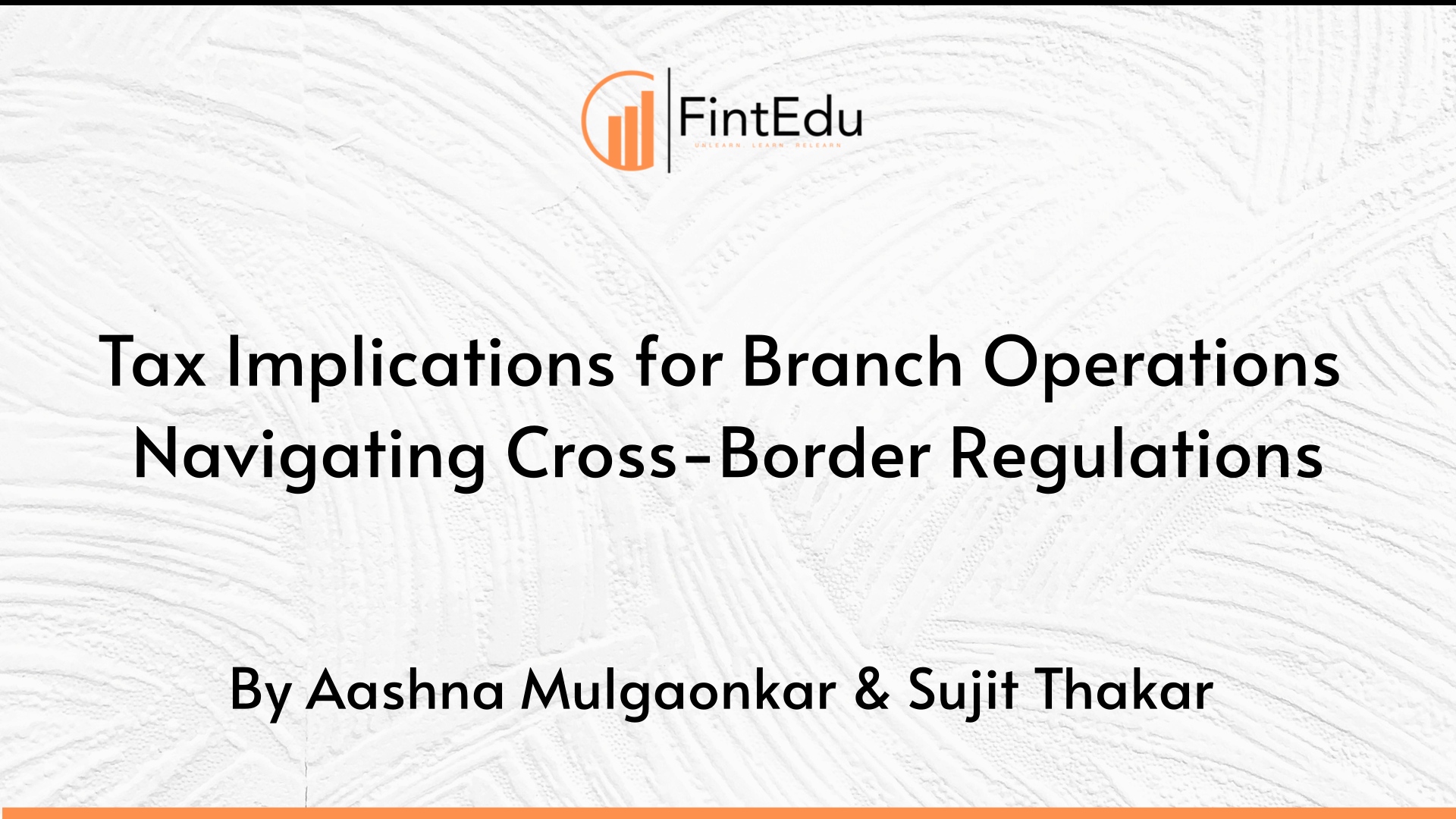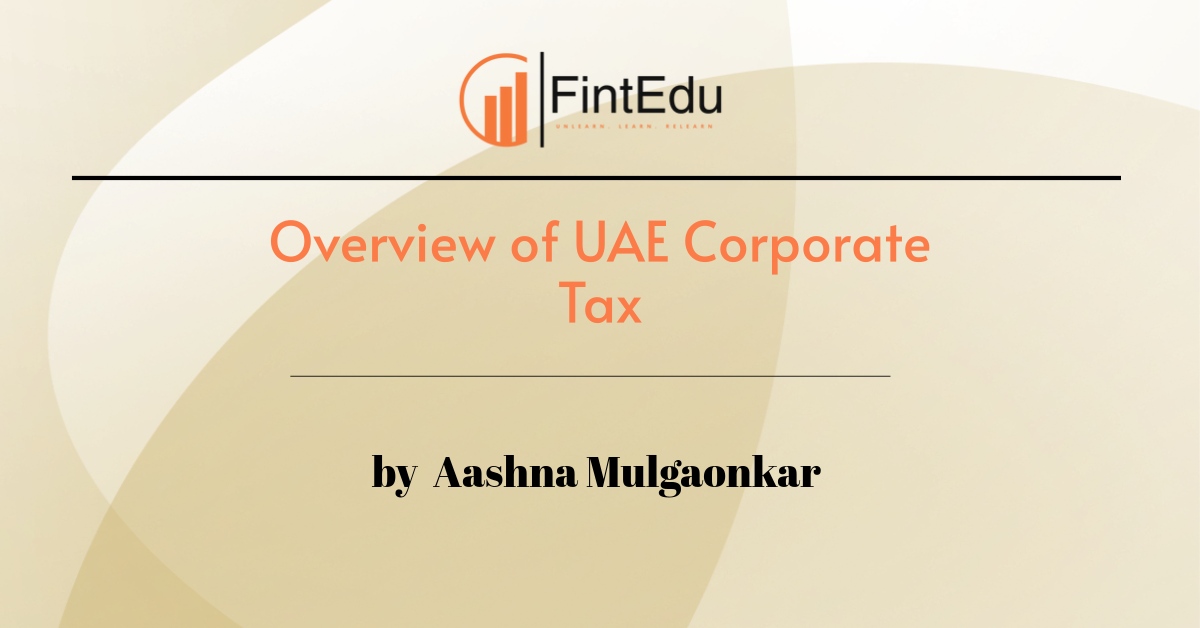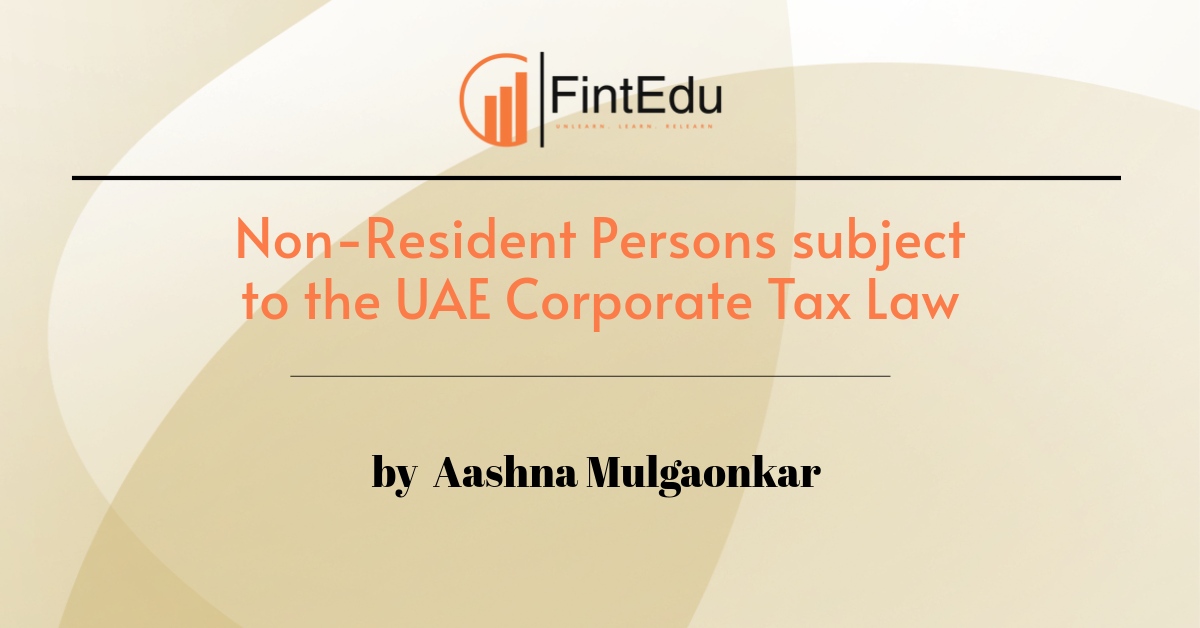LISTEN TO THIS ARTICLE
Under the OECD Model Tax Convention, a branch is typically considered a "Permanent Establishment" (PE) of a foreign enterprise. This classification means that the branch's profits attributable to activities conducted within the host country are subject to taxation in that jurisdiction. The concept of a PE is crucial in determining the tax liability of a branch, as it establishes the right of the host country to tax the business profits arising from the PE's activities.
In the UAE, the corporate tax implications for branches depend on whether the branch belongs to a resident or non-resident company.
1.Branch of a Resident Company: According to the UAE Corporate Tax Law (Federal Decree-Law No. 47 of 2022), branches of a resident juridical person (e.g., a company established in the UAE) are subject to UAE corporate tax. The income derived by the branch is included in the taxable income of the parent company and taxed at the corporate tax rates, which are 0% on taxable income up to AED 375,000 and 9% on taxable income above this threshold.
2.Branch of a Non-Resident Company: A branch of a non-resident juridical person is considered a "Permanent Establishment" (PE) in the UAE if it carries out ongoing business activities in the country. In such cases, the branch will be subject to corporate tax on the income attributable to its UAE operations. The PE concept ensures that non-resident companies with a fixed place of business or significant presence in the UAE are taxed on income derived from the UAE.
What are the key Principles to be considered:
- Arm's Length Principle: Transactions between the branch and its foreign head office or other related entities must be conducted at arm's length, meaning the prices and terms should be consistent with those that would have been agreed upon by unrelated parties.
- Taxable Income: The taxable income of a branch includes income derived from business activities conducted in the host country. This income is calculated by considering the branch's gross income and allowable deductions for expenses incurred in earning that income.
- Double Taxation Relief: The OECD guidelines provide mechanisms to prevent double taxation, typically through the use of tax credits or exemptions. Countries with tax treaties based on the OECD Model Tax Convention generally adhere to these principles, allowing the home country of the foreign enterprise to grant relief from double taxation.
- Reporting and Compliance: Branches must adhere to local tax laws and reporting requirements in the host country. This includes filing tax returns, maintaining proper accounting records, and, where applicable, complying with transfer pricing regulations.
Branches of Foreign Companies in the UAE now need to analyze the following:
- Taxability as per UAE corporate tax perspective: Branch of a foreign company is considered as a PE as per UAE tax law and, therefore, is generally subject to UAE corporate tax on its UAE-sourced income.
- Taxable Income: The taxable income of the branch is determined based on its UAE-source income, including profits attributable to the UAE branch. The global income of the foreign company is not subject to UAE corporate tax; only the income earned within the UAE through the branch is taxable.
- Whether it is a Foreign Permanent Establishment or Domestic Permanent Establishment (branch of a Free zone Person in mainland) it should be treated as if it were a separate and independent Person from its parent entity. For example:
The income or profits attributable to the Free Zone parent, Foreign Permanent Establishment or Domestic Permanent Establishment should be consistent with the arm’s length principle (i.e. based on the respective functions, assets and risks of the Free Zone parent and the Foreign Permanent Establishment or Domestic Permanent Establishment, as if the Free Zone parent were a separate Person transacting at arm’s length). The Free Zone parent must earn and record an appropriate level of operating profits or losses determined in accordance with internationally accepted profit attribution methods such as the separate entity approach.
If the outputs from the Free Zone parent are used in the Business of its Foreign Permanent Establishment or Domestic Permanent Establishment, the Free Zone parent would be treated as if it has derived Revenue from a Non-Free Zone Person.
In applying the Beneficial Recipient rule (see Section 4.3.1), a Foreign Permanent Establishment or Domestic Permanent Establishment would not be treated as if it were a Free Zone Person.
A Free Zone Person is not considered to have a Domestic Permanent Establishment if the activities conducted through a fixed or permanent place of Business are solely of a preparatory or auxiliary nature. Activities are considered preparatory or auxiliary if they consist of:
- Storing, displaying, or delivering of goods or merchandise belonging to the Parent,
- Keeping a stock of goods or merchandise belonging to the Parent for the sole purpose of processing by another Person,
- Purchasing goods or merchandise or collecting information for the Parent,
- Conducting any other activity of a preparatory or auxiliary nature for the Parent, and
- Conducting any combination of the above activities, provided that the overall activity is of a preparatory or auxiliary nature. To meet the preparatory and auxiliary activities test, the Parent must use the fixed place of Business solely for preparatory or auxiliary purposes.
The preparatory and auxiliary activities exception would also not apply if the Parent or a Related Party carries on a Business or Business Activity at the same place or at another place in the UAE outside a Free Zone, and both of the following conditions are met:
- One or more of the places constitutes a Domestic Permanent Establishment for the QFZP (if it’s a free zone entity) or its Related Party, and
- The overall activity resulting from the combination of the activities carried out by the QFZP and its Related Party at the same place or at the two places is not of a preparatory or auxiliary nature and together would form a cohesive Business operation, had the activities not been fragmented.
Key Considerations
Branches in designated Free Zones might benefit from a 0% corporate tax rate on qualifying income if they meet the requirements to be considered a "Qualifying Free Zone Person".
In summary:
- UAE branches of resident companies are taxed like the parent company.
- Branches of non-resident companies may be taxed if they constitute a PE in the UAE.
- Free Zone branches might benefit from tax exemptions under certain conditions.
Disclaimer: Content posted is for informational and knowledge sharing purposes only, and is not intended to be a substitute for professional advice related to tax, finance or accounting. The view/interpretation of the publisher is based on the available Law, guidelines and information. Each reader should take due professional care before you act after reading the contents of that article/post. No warranty whatsoever is made that any of the articles are accurate and is not intended to provide, and should not be relied on for tax or accounting advice
Authors

Aashna Mulgaonkar
Aashna Mulgaonkar is a Chartered Accountant and Tax Consultant with nearly two decades of experience in Finance and Administration in the UAE. Her expertise includes Auditing, Taxation, and compliance with VAT, AML, and UBO regulations. She has been pivotal in mergers and acquisitions and establishing Finance departments across various industries. An ex-banker, Aashna mentors students in Finance and Accounting and serves on the Executive Committee of the ICAI Dubai Chapter.

Sujit Thakar
Sujit Thakar is a Chartered Accountant and Global Transfer Pricing Specialist with extensive experience in advisory, litigation, and compliance. Currently a Partner at TransPrice Tax Advisors, he previously held senior roles at KPMG UK and BSR & Co. LLP. Sujit earned his ACA from The Institute of Chartered Accountants of India and holds a Bachelor's Degree in Accounting and Finance from Savitribai Phule Pune University.


